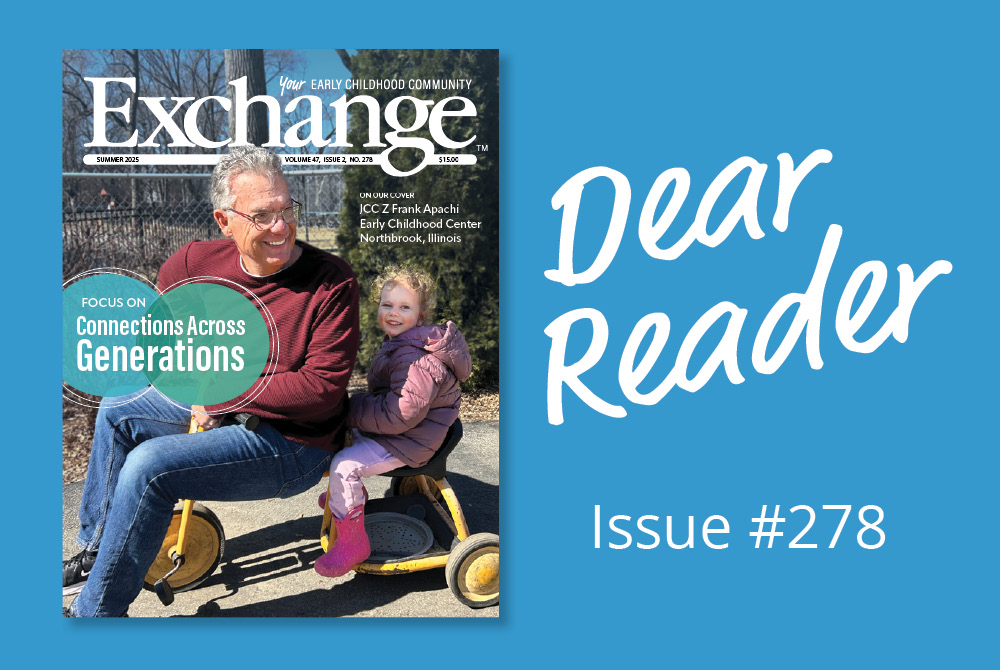Each day began the same. Sipping on a freddo espresso from the shop down the street, I would help the permanent and community volunteers prepare for the children. We would set up provocations in the kitchen and block areas and make sure the clay was damp and the light table was artfully arranged with fine sand and loose parts for exploration.
The first arrivals were often the same children. Some families clearly organized their daily schedules around the Nest’s clock. Children age 3 to 8 pressed through the latched baby gate to wash hands and put on clean socks before bolting toward their favorite play areas. Some gravitated toward a favorite caregiver; others took charge independently, building a Magna-Tile tower or preparing a feast of wooden sliced vegetables and cheese. Following the Nest’s thoughtfully established pedagogy, we let the children set the pace and guide our own work; as much as anything I was a housekeeper, tidying areas for new arrivals and serving tea.
The Nest, which serves refugee children on the island of Samos, Greece, is one of six such spaces in the world (see our cover story, page 50.) These Nests have carved out a unique niche in the sprawling global refugee crisis—one of pedagogically rich, state of the art early childhood education in nooks and niches in Greece, the Democratic Republic of Congo, and in Mexico along the southern U.S. border.
In preparation for this issue’s cover story, I traveled to Greece last November to volunteer for one week in the Samos Nest. What I experienced—what I suspect all volunteers experience—was a combination of heartbreak, transformation, hope, grief and joy… and sometimes all of those emotions within a 10-minute span. I would observe young boys, clearly grappling with PTSD and the squalid and overcrowded refugee camp living conditions, acting out their frustrations on their peers. Some toddlers wanted endless snuggles; others were suspicious of my newness. A bright Afghan girl with significant physical challenges climbed on Jamal, a Syrian volunteer who clearly held her title of “favorite.” As volunteers played and assisted, the children’s parents stepped out for computer and language classes or just a moment of calmness before reclaiming their little ones and walking back to the sprawling camp.
My trip to the Nest was my seventh trip to Greece as a humanitarian volunteer, and unfortunately, I observed that living conditions for refugees continue to deteriorate and hopelessness feels pervasive for both volunteers and the communities they serve. Waiting for UNHCR interviews—and eventual resettlement to Western Europe—can take years, and in the meantime, families reside in makeshift shelters or camping tents in all weather conditions and stand in lines for hours for meager (and sometimes rotten) meals. I did not leave Samos feeling positive or hopeful about policymakers’ dedication to these families from Afghanistan, Syria, Iraq, Palestine, and many other countries. I continue to wonder, when will the international community show up for these children? Where is the undercurrent of compassion that unites us all in spite of different citizenships, religions and ethnic backgrounds? How can we allow newborn babies and their siblings and parents to endure such hardship?
I cannot answer those questions, but when I am asked to share positive stories from my visits to Greece, I can now point to the Nest program as a bright spot in the midst of such darkness—an initiative that recognizes the inherent need for children to be children. To play. To wrestle and stack and draw and create. To determine their own actions in a safe and nurturing environment. To grab a parent’s hand and declare proudly, “Look at what I’ve made!”
I invite you to consider volunteering in a Nest in the coming months. These magical spaces welcome early childhood professionals from around the world to engage with children and their families in meaningful and profound ways. Block out some vacation time, get in touch with the Pedagogical Institute of Los Angeles (the Nest’s “parent” organization) and hop on a plane. The children are waiting for you.
Sara Gilliam author and former editor of Exchange magazine.
Related
ADVERTISEMENT











